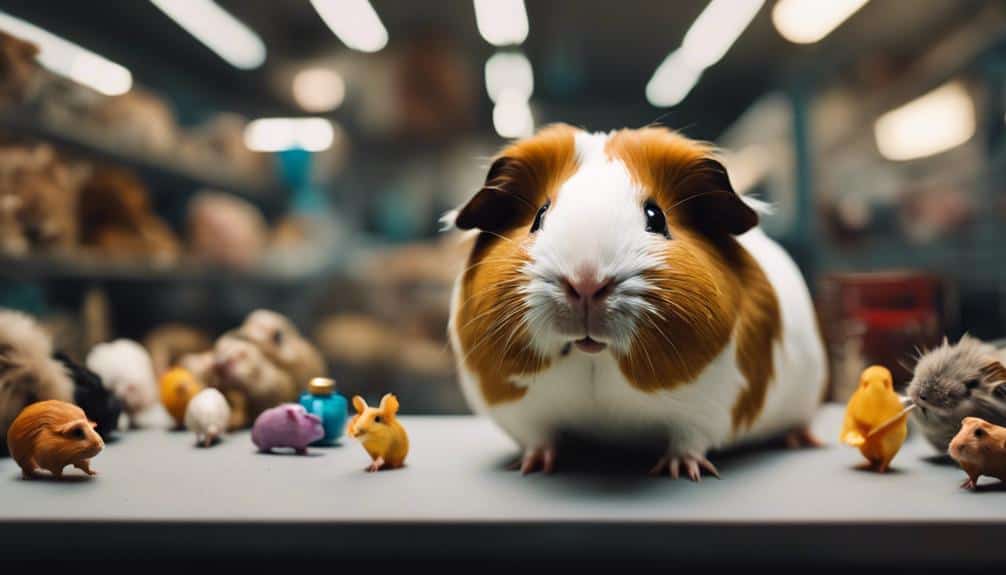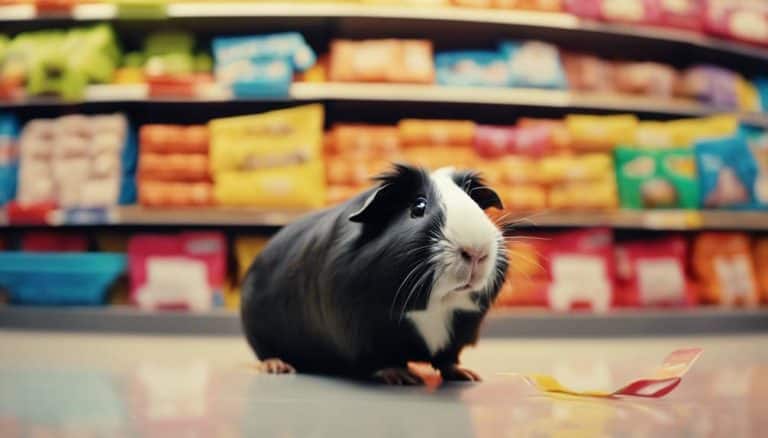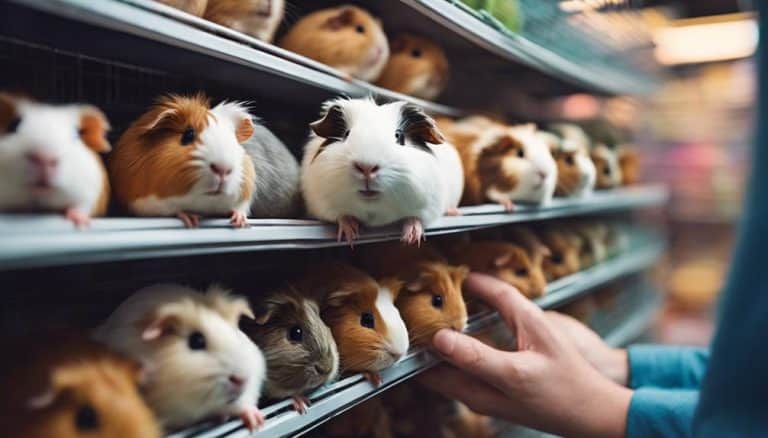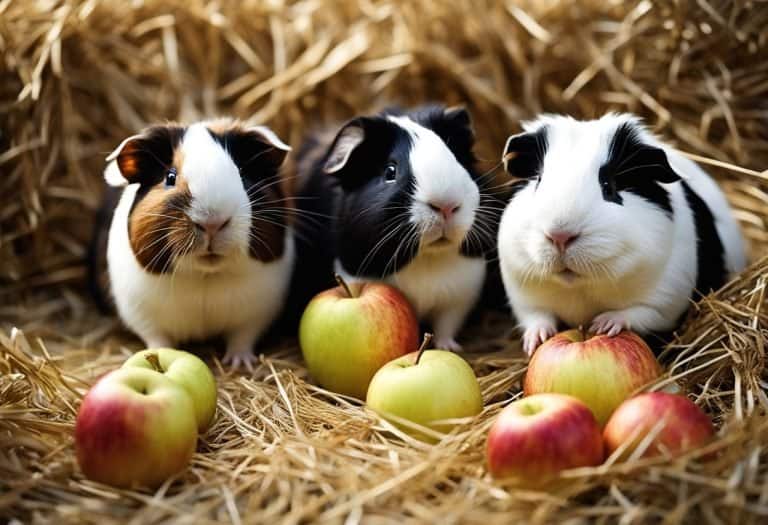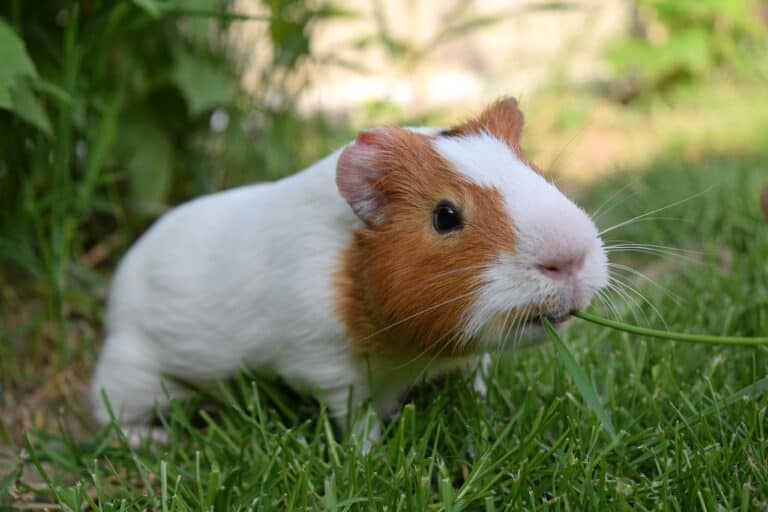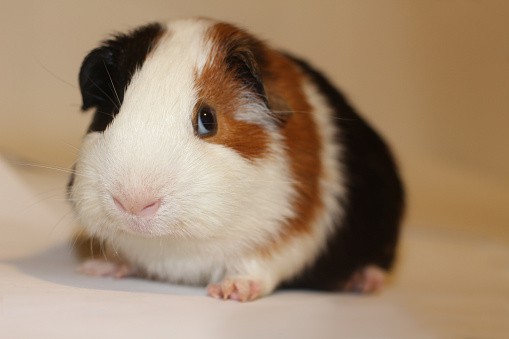How to Buy a Guinea Pig: Your Complete Guide
When starting on the journey of purchasing a guinea pig, we must acknowledge the plethora of considerations that come into play. From selecting the ideal furry companion to creating a nurturing environment, the process demands meticulous attention to detail.
Proper guidance on where to acquire your new pet is just the beginning; understanding their needs and behaviors is equally pivotal. Ready to uncover the essential steps in acquiring a guinea pig that will fit seamlessly into your life?
Finding a Reputable Guinea Pig Breeder
When searching for a reputable guinea pig breeder, it’s essential to prioritize the health and well-being of the animals they care for. Guinea pigs require a clean and spacious environment to thrive. A breeder who prioritizes the care of their pigs will provide a suitable living space that meets these needs.
Additionally, when looking for a Guinea Pig, beginners need to find a breeder who understands the specific care requirements of these pets. Proper care includes a well-balanced diet, fresh water, and regular exercise.
Ensuring the breeder has a good reputation is critical. Reading reviews, checking references, and if possible, visiting the facility can give valuable insights into how the breeder operates. It’s essential to verify that the breeder practices ethical breeding methods and prioritizes the genetic health of their pigs.
Asking about the breeder’s experience, knowledge, and commitment to helping you choose the right Guinea Pig is also important. This ensures that you’re getting a pet that’s healthy and well-suited to your lifestyle.
Adopting From a Rescue Organization
Adopting from a rescue organization offers a compassionate way to provide a loving home for guinea pigs in need. When considering adopting from a rescue, keep in mind the following:
- Second Chance: Rescues provide guinea pigs with a second opportunity at a happy life, offering them a safe environment and care they deserve.
- Ethical Choice: Choosing to adopt from a rescue organization rather than buying from a pet store supports ethical practices and helps combat issues like overbreeding.
- Guidance and Support: Many rescue organizations not only facilitate adoptions but also offer valuable guidance and support for new guinea pig owners, assisting in the handover and providing resources for proper care.
Preparing Your Home for a Guinea Pig
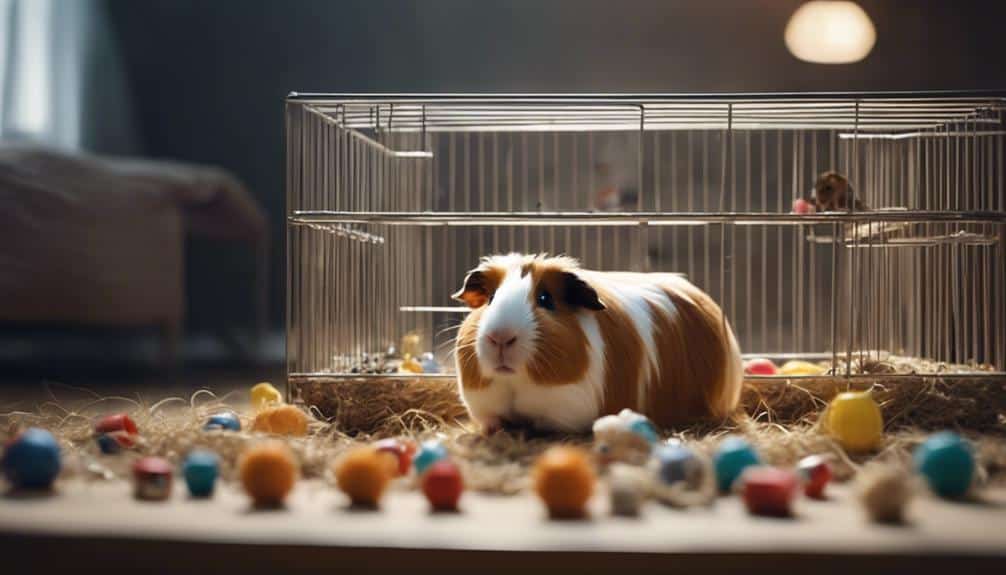
Considering the well-being of your new guinea pig, it’s crucial to make sure that your home is adequately prepared to meet their needs. As responsible guinea pig owners, it’s important to create a safe and comfortable environment for our furry friends. Here are some essential steps to prepare your home for your guinea pig:
| Aspect | Description |
|---|---|
| Spacious Cage | Provide a cage with a minimum of 7.5 square feet for one guinea pig and 10.5 square feet for two. |
| Soft Bedding | Use soft bedding in the cage to prevent foot sores and ensure comfort. |
| Water Bottle | Supply a water bottle for easy access to clean water, promoting hydration and health. |
| Appropriate Flooring | Choose flooring that is safe for guinea pigs to prevent foot issues and maintain well-being. |
Essential Supplies for Your New Pet
To properly care for your new guinea pig, make sure you have the essential supplies they need for their well-being.
- Guinea pig cage: A spacious cage is important, providing at least 7.5 square feet for one guinea pig and 10.5 square feet for a pair to roam and play freely.
- Bedding and hiding spots: Soft bedding like fleece liners offers comfort, while cozy hiding spots create a sense of security for your guinea pig to rest and relax.
- Food and water containers: Make sure your guinea pig has access to balanced nutrition and hydration with food dishes for pellets and fresh hay, along with a water bottle that’s regularly filled and cleaned.
Meeting Your Potential Guinea Pig
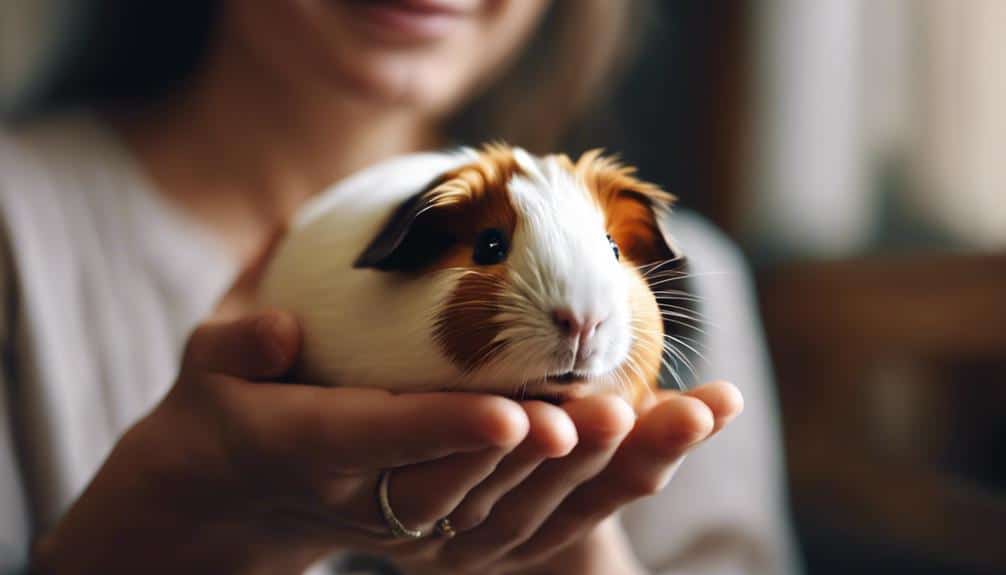
When meeting a potential guinea pig, evaluate their behavior to gauge their health and temperament. It is vital to observe how the guinea pig interacts with you and their environment. Look for signs of alertness, curiosity, and a healthy coat. Interact with the guinea pig gently to see how they respond to handling, as this can indicate their comfort level with human contact. Additionally, check for any visible signs of illness or injury, such as discharge from the eyes or nose, bald patches, or limping.
| Behavior | Signs of Health | Cleanliness |
|---|---|---|
| Alert and curious | Shiny coat | Clean cage |
| Friendly | Bright eyes | Fresh bedding |
| Responsive to touch | Eats and drinks well | Tidy appearance |
Make sure that the guinea pig’s environment is clean, well-maintained, and provides adequate space for exercise. Inquire about the guinea pig’s history, diet, and specific care requirements to guarantee you can meet their needs effectively. By thoroughly evaluating these factors during your meeting, you can make an informed decision about bringing a new furry friend into your home.
Conclusion
To sum up, remember that buying a guinea pig is like planting a seed – with proper care and attention, it will flourish into a thriving companion.
Take the time to research, prepare, and provide a loving environment for your new pet. By doing so, you’ll cultivate a bond that will bloom into a beautiful friendship that will bring joy and fulfillment to both you and your furry friend.
Happy guinea pig parenting!

